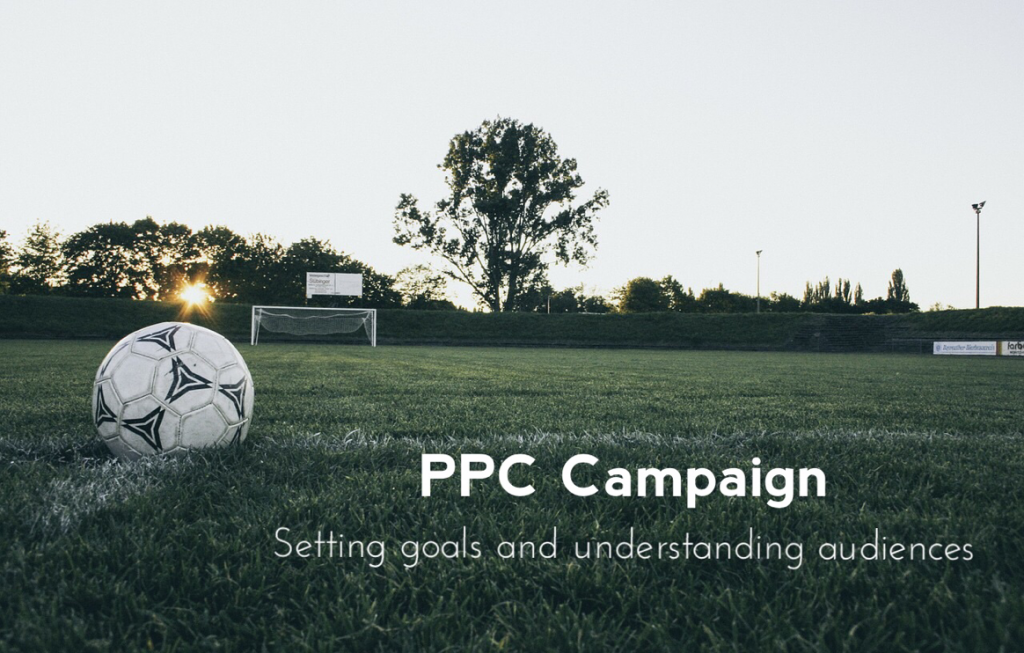Set Goals and Understand who your Target Audiences are
In a fiercely competitive world of today, nothing can be aced with a mere hit-and-trial technique. One needs to be strategic and needs to follow a systematic approach towards goal attainment. Same goes with PPC (Pay Per Click) campaign. With high amounts, allocated to digital marketing, on stake and with a business’s reputation in making, marketing professionals need to make sure that a lot of homework is done before actually jumping into the domain of PPC.
In order to achieve positive, consistent results, you must firstly conduct research on your business goals and your target audiences. With an underlying business goal to measure your success against, you will be able to make sure whether your PPC campaign succeeded or not. With this crucial information in hand, you can either continue with your existing strategy or tweak it to meet changing demands. With in-depth information on your target audience, you

will be able to make sure that you communicate well with your potential customers.
Imagine playing a game of football. If you simply keep on kicking the ball anywhere, in no particular direction; sure, you would be having fun but you can’t win this way. In order to win, you need to kick the ball in a proper direction to attain a goal. This requires proper understanding of your goal as well as your target.
Just like before kicking the ball, you know where it should land for a successful goal; before getting your hands dirty with the PPC campaign, know what your business goals and who your target audiences actually are.
But, easier said than done! Studying your business and understanding your target audiences take days of hard work, planning, and data collection for developing a campaign that would actually reap real benefits to your business.
So, let’s begin and see how to successfully go through these initial steps of PPC campaign:

Setting your Business Goals
Studying your business to help you set your marketing goals against a particular time frame is the first and foremost task for running any successful PPC campaign. It’s important to ascertain the true goals of your business and what you really wish to achieve from the PPC campaign before actually starting to strategize or planning it. This will make sure that the aim with which you start the PPC campaign in mind, that is, to direct a notable quantity of target audience to your website and significant returns to investment will be fulfilled.
As you study your business, you need to find out one specific goal you wish to achieve with PPC marketing campaign. Sure, you want to increase sales, attract more traffic, and generate revenue. But, these all are very vague and general. You need to come with a real-life, achievable goal. Here is how you can create a realistic PPC campaign goal:
How to use #PPC campaigns to drive targeted #traffic to #WordPress sites—https://t.co/MIvZo83iqo via @MHthemes #Marketing #Advertising #Ads pic.twitter.com/expix02mFB
— Francis Unson (@DJFrankieee) February 28, 2017
- Focus on results: Rather than setting a goal of ‘adding 500 new, relevant keywords to my account’, set a goal of ‘in the coming year by March, we will increase our sales by 30 percent over last March, thanks to PPC’. With your goals, you focus on output your efforts will generate and not on your input. Once your goals are set, you then focus on planning your inputs accordingly.
- Update your goal document: A goal document is a written record of your goals to keep you always on your toes and accountable. It also helps you track your progress. Make sure you update this document on monthly basis, based on ever-changing business demands and by analyzing varying previous performances.
- Analyze performance: While creating a goal plan in the start is important, analyzing goal performance is as important to enable the ongoing campaign perform well. Do not simply answer whether you achieved the goals or not. Rather, measure your performance and analyze the reasons you were or were not able to achieve the goals.

Understanding your Target Audience
You cannot really set and even meet your PPC goals until and unless you know well about your target audiences. Defining your profitable customers is an important first step in drafting the underlying strategy behind your PPC marketing campaign. Information regarding your target audience will help you understand broader insights that will come in handy throughout your campaigns.
Right keywords are the essence of PPC campaign. These terms are the ones that qualified visitors type to find your site in order to avail your services or buy something. But, you cannot ascertain the right keywords for your PPC marketing without knowing your audiences. Here is how to find out who your target audiences are:
- Assume: Just as a starting point, start with making assumptions about your target audiences. Define them well, based on their sex, age, demographic details, geographic locations, income levels, and social/psychological needs. While this is not a vert practical approach, this step will help you narrow down your audiences well from a large population.
#AdWords Quality Scores: 5 Tips To Improve Your #PPC Performance https://t.co/uTDEKl4rus via @marketinglabsuk pic.twitter.com/Efmf4jRlQ6
— CrowdMarketing (@crowd_marketing) March 6, 2017
- Survey: You have customers who are paying for your services or products on regular basis. You need to now identify such customers who have bought in the last 3-4 months from you. Depending on their purchase history, you can get to know them and their shopping behaviors. Survey them in a short, simple way with questions like, ‘who are you’, ‘what are you using the product for’, ‘have you considered any alternatives to the product’, ‘how satisfied are you with the experience’, ‘what do you like the most about the product’, and the like.
- Google Analytics: When talking about the digital marketing campaign, it is important to keep in mind the audiences that are out there in online world. Set up your Google Analytics profile and set the goals in order to see some information about the type of audience that purchases from you or signs up for your mailing list etc.
Once you have set your specific goals and understood your target audiences, it is time to go to Step 2 of PPC campaign. In the next step of the series, you will learn how to create a persona map for your target audiences.
Ash Ganda



